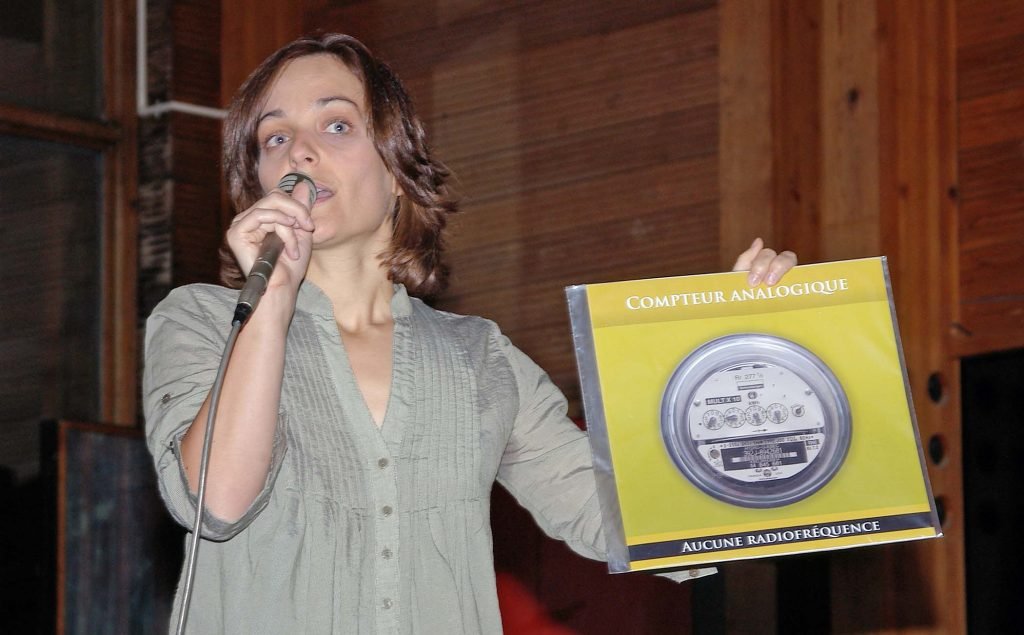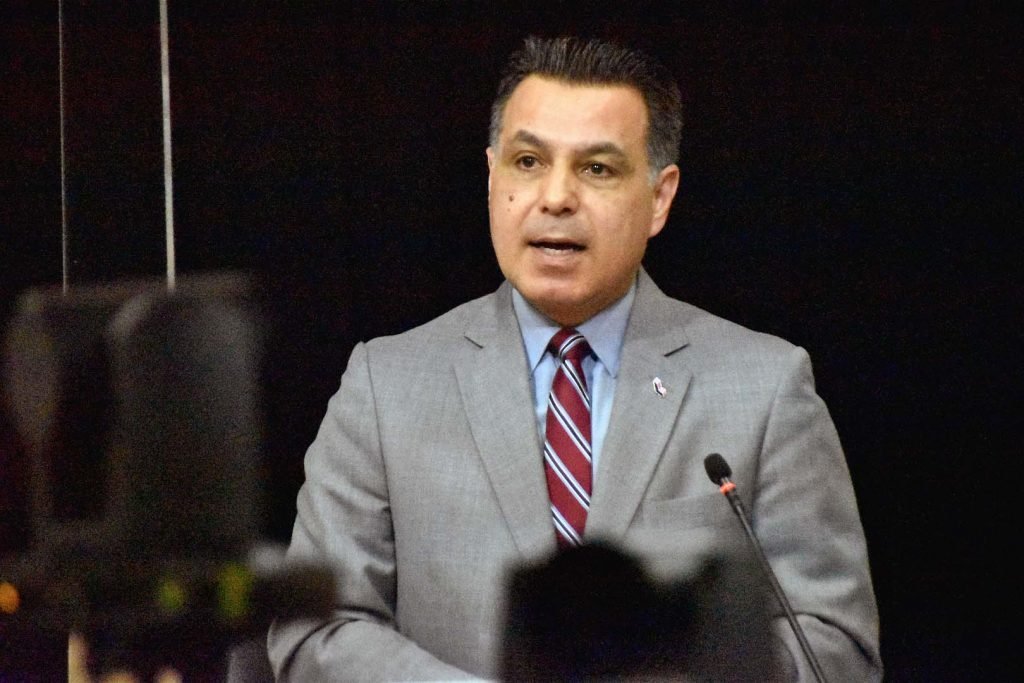Opponents claim system’s electro-magnetic waves can aggravate health problems
A former leader from a grassroots group that tried more than a decade ago to draw attention to alleged electro-magnetic-induced health issues they claimed were caused by Hydro Quebec’s wireless billing meters is asking the City of Laval to look into similar problems they say may be triggered by the city’s new wireless parking signage network.

Parti Laval official opposition leader Claude Larochelle, who is the city councillor for Fabreville, tabled a petition during the Oct. 3 city council meeting which had been signed by 23 Laval residents who are opposed to the implementation of the wireless parking signage system.
Easier snow removal
“These people are sensitive to electro-magnetic waves as well as light pollution and this is the reason why they wished to address the mayor and the councillors,” said Larochelle, noting that the petition, which he said was initiated by Véronique Riopel, was accompanied by a letter which had been signed by the 23 residents.
Laval city council gave the go-ahead to the new wireless parking sign system in June. It is expected to simplify snow removal operations and winter-time street parking across Laval in the coming years.
The system will allow the public works department to act smoothly and quickly on snow removal by allowing electronically-lit no-parking warnings to be adjusted wirelessly, while doing away with the need to manually put up sandwich board no-parking signs before snow removal operations.
Suspected health hazards
The system is also expected to be used during the summer months to warn motorists not to park on certain sides of Laval’s streets whenever street-sweeping machinery is expected to pass by.

More than a decade ago, Véronique Riopel was one of several people who were leading a movement across the province opposing Hydro Quebec’s wireless meters, through a citizens’ lobby group based here known as Laval Refuse.
At that time, she and other activists were asking Hydro Quebec to allow them to keep the old non-wireless analog billing meters in their households, as they felt certain that the wireless meters were emitting radio signals which were undermining their health.
Supporters of the anti-wireless cause in Laval and other parts of Quebec said they had gathered evidence and testimonials from persons who claimed to have fallen ill or suffered significant side-effects.
These included migraines and heart palpitations which came on soon after a wireless meter from Hydro Quebec was installed where they lived. They claimed the symptoms went away when they removed the suspected source.
De la Concorde bike path
During the Oct. 3 council public question period, Pierre Anthian, a former city councillor and one-time mayoralty candidate from Laval-des-Rapides, said he was hearing complaints from bicyclists using the bike path that travels along de la Concorde Blvd. beneath the overpass near the de la Concorde intermodal transit station.
He said that at least one person told him she says a prayer before using the bike path as its layout was so poorly designed that bicyclists are taking their lives in their hands every time they travel on it. Action Laval city councillor for Saint-Bruno David De Cotis said he agreed with Anthian, while noting that a number of other bike paths in Laval are hazardous.
Mayor Stéphane Boyer said the de la Concorde bike path “is not the most pleasant because you pass beneath an overpass and there are echoes while buses and trucks are going along on de la Concorde.”
But he added that having no bike path at all in that location would be worse. He said the city is continuing to make improvements in order to make the city’s bike paths more secure in the future, with special attention being focused on the de la Concorde bike path.

Linear park controversy
The Action Laval opposition party reacted swiftly last week to the Boyer administration’s decision to purchase the first two lots for an eventual linear park in central Laval at a cost of $2.6 million.
The properties in question are located at the northwest corner of Souvenir and Le Corbusier boulevards near the Centre Laval shopping mall. While two Action Laval councillors said they favour the creation of the linear park, they added that they consider the way the mayor is going about it to be improvisation at a very high cost to taxpayers.
“The mayor has no idea of the total cost of this project,” said Saint-Bruno city councillor David De Cotis. “Can you imagine that the government would go ahead into a project without having at least some idea of the total cost? I have never seen anything like this. The only point of reference he has to start this project is an image from his plan for the city centre.”
‘Irresponsible,’ says opposition
Mayor Boyer acknowledged that he has never actually seen any hard numbers for the linear park project. Action Laval said it considers the city’s purchase of the first properties for the park to be irresponsible if the city has no firm idea of what the eventual cost will be.
Val-des-Arbres councillor Achille Cifelli, who is Action Laval’s current interim-leader, said he and the other members of the party voted against the purchase because they had no real idea of where the costs are headed. “We want to put into place responsible and accountable management, along with good governance,” he said.



